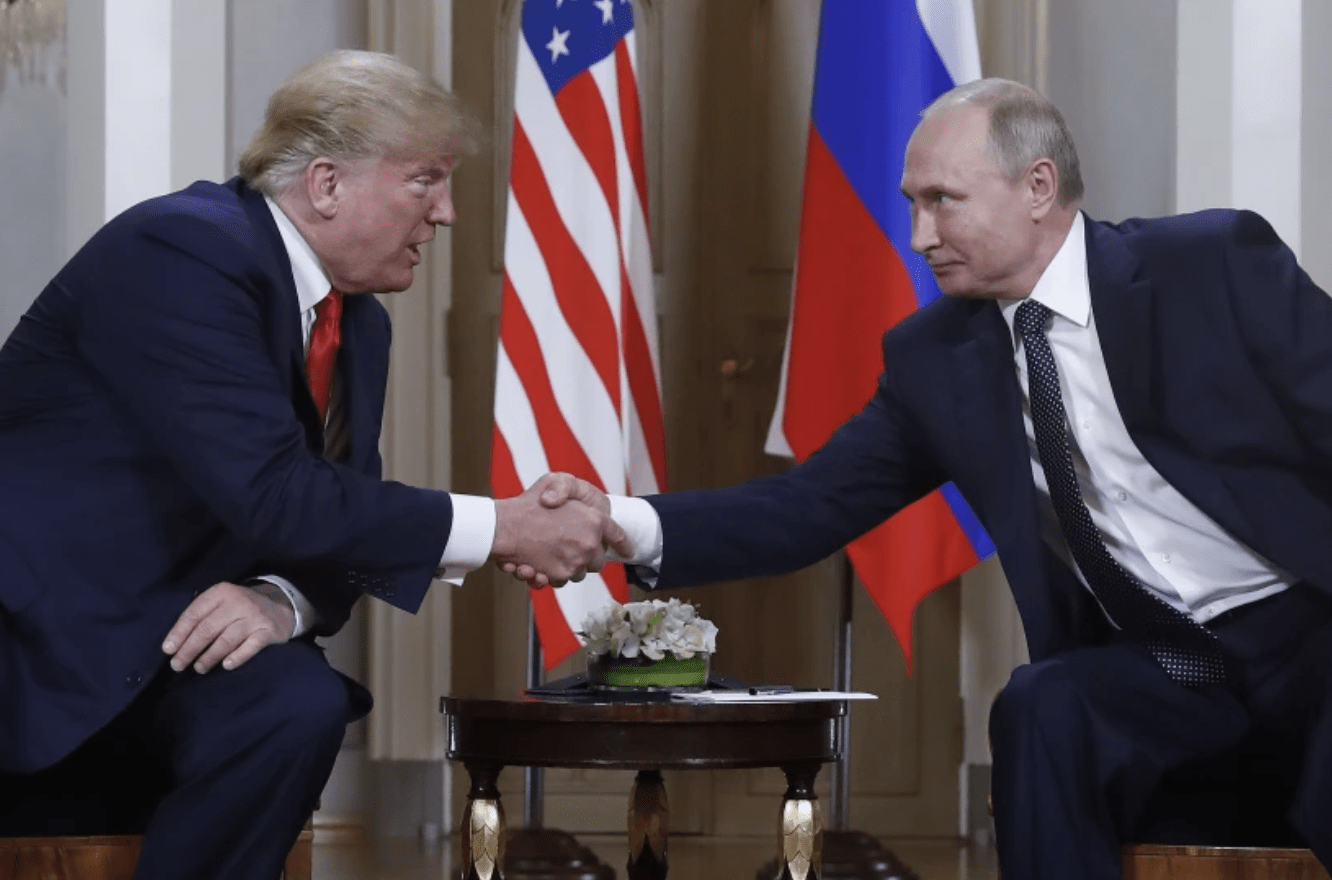Trump and the Age of the Weaponized Narrative
 AP
AP
By Lisa Van Dusen
May 10, 2018
As America continues to thrash through the daily onslaught of political and psychosocial destabilization emanating from its own president, it may be time for therapeutic thought experiment.
Sometimes in life, it can help to retrieve the cognitive kaleidoscope from the ditch into which it’s been flung by heretofore unimaginable events, give it a shake and a wee twist to see how the chips realign.
What seems evident in the story so far of Mr. Trump’s hostile takeover of American democracy is that it was propelled at least in part by an operating system aided by Russian intelligence. Because covert operations generally don’t publish quarterly reports, what isn’t entirely clear is if and when, precisely, that operating system shut down, whether any other interests had a stake in it and whether its mission included any outcomes beyond “meddling.” Given the shamelessness of some of the stunts pulled by interests — covert and overt — invested in the degradation of democracy worldwide recently, these may be pretty relevant questions. Given Mr. Trump’s unabashed support for many of those bad actors, to what degree is he one of them?
As degrading, despair-and-change narratives go, the 2016 U.S. presidential campaign was spectacular. The relentless offensiveness of Mr. Trump’s campaign and the cascade of gobsmacking inputs that legitimized and sustained it reflected an America whose identity had suddenly transformed beyond recognition after it had twice elected Barack Obama. Not just in an Electoral College vs. popular vote/disputed-hanging-chads fog but in the first back-to-back victories of more than 51 per cent of the national popular vote in more than half a century.
Hillary Clinton’s campaign — if you’ll recall the pre-Russian meddling-narrative conventional wisdom based on all the available sensory, anecdotal and journalistic evidence generated by the candidate herself — was only marginally less off-putting than Donald Trump’s, making the entire general election an exercise in cynicism so potent that “dumpster fire” became an insufficiently dystopian simile very early on. New York Times reporter Amy Chozick’s new book, “Chasing Hillary”, chronicles the trajectory of a candidate whose contempt for the media played out by proxy in the bullying mind games her press staff deployed against reporters (“You’ve got a target on your back” one of them tells Chozick).
In tactical terms, Mr. Trump’s presidency has performed the function of not just overthrowing longstanding norms whose obliteration has produced the highly valuable — to those attacking democracy — outcome of a public whose capacity for shock is in danger of being deactivated. It is refashioning America’s identity both internationally and to its own citizens. The operatic parade of horribles witnessed in the past 16 months of his anything-can-happen presidency has overwritten America’s positive-and-negative-within-predictable-parameters national narrative with a circus of hourly psychological warfare tweets, Tiki-torch Nazis and aggrieved porn stars. It has taken key elements of American political culture — deference for the office of the president on the part of the media and Congress, confidence in the resiliency of the system of governance, good faith assumptions of allegiances and loyalties, including patriotism, on the part of one’s fellow citizens — and weaponized them as existential vulnerabilities.
As Mr. Trump himself knows based on his organization’s reported use of an Israeli spy firm to conduct a “dirty ops” campaign against Obama administration aides associated with the Iran nuclear deal, intelligence practices have migrated to politics in a way that makes the line between publicly and privately funded intelligence entities, as well as old assumptions about national and ideological delineations, obsolete if not pointless.
As with so many aspects of our lives that have been transformed by technological innovation in the past 20 years, politics has been contaminated by tactical early adapters who are leaving the guardians of reason in their destabilizing dust.
Lisa Van Dusen is associate editor of Policy Magazine. She was Washington bureau chief for Sun Media, a writer for Peter Jennings at ABC News, and an editor at AP in New York and UPI in Washington.
